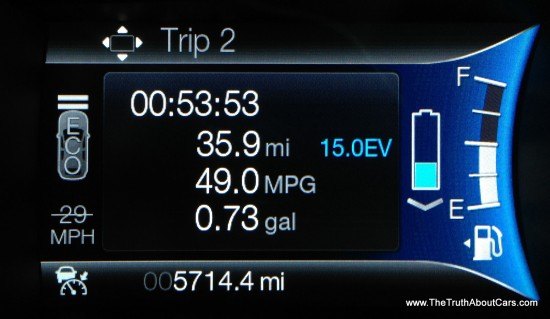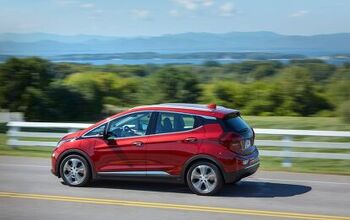EPA: Automakers Ahead Of 2025 CAFE MPG, CO2 Emissions Targets
Though automakers still have a decade to hit the 2025 CAFE target average of 54.5 mpg, the Environmental Protection Agency proclaimed in a just-released annual report that the automakers were ahead of schedule in meeting said target.
Autoblog Green says the EPA’s Manufacturers Performance Report noted consumers bought more clean vehicles made for the 2012 model year than what was required by the 14-year-long program to reduce greenhouse emissions for the first year.
In addition, the report broke down by automaker CO2 reduction over-compliance. While Tesla led the way in MY 2012, Toyota gathered the most credits among those who still use fossil fuels at over 13.1 million metric tons, providing 6.5 metric tons to ever vehicle sold that year. The rest of the industry garnered a total of 25 million metric tons in CO2 over-compliance credits in 2012, leading to a 10 grams per mile decrease in emissions than what the program required.
As for the CAFE target, the recent EPA Fuel Economy Trends Report found a 1.2-mpg improvement among the automakers over numbers in 2011, the second biggest improvement in 30 years. Further, the agency saw a doubling of SUVs with economy ratings of 25 mpg or higher, while seven times as many cars gained an average of 40 mpg and above.
Seattle-based writer, blogger, and photographer for many a publication. Born in Louisville. Raised in Kansas. Where I lay my head is home.
More by Cameron Aubernon































Comments
Join the conversation
While everybody is over here dumping trillions of dollars into and wringing there hands over global warming an asteroid will come up from behind and kick our collective butts into a nuclear winter type scenario destroying most of life as we know it and the cycle will start all over again. Then we can all be part of the fossil fuel used a million years from now. Pay it forward
Why are there even any alarmists on this site? If you believe there is significant warming, that it is manmade, and that it's catastrophic, why aren't you hanging out over at "The Truth About Public Buses?" You could debate the best place to sit to minimize NVH on your daily 7 mile, 2 hour commute. If you truly believe the danger from global warming is imminent and catastrophic, and you haven't completely sworn off any and all use of fossil fuels, doesn't that make you a hypocrite?
What is the problem with trying to make vehicles more efficient? Is this progress? I can't believe some of the comments, which appear to be approached with a simplistic rural type attitude. I'm no greenie and as most can tell I totally support economic freedom, whether it be the removal of protectionist measures which leave consumer with less freedom of choice. Freedom of choice is one thing I found on this site that isn't cherished by many, particularly a few of our US allies. I do believe in constructive and progressive regulation that improves. If it wasn't for regulations demanding improvement in our emission levels, whether it be NOx, CO2, etc. we wouldn't have the high performance from vehicles we have now. I see nothing wrong with trying to use less fuel. Not so much for the CO2 emissions, but for our great grand kids and their great grand kids. Why deplete a resource just because we can? Does everyone spend their money until they have nothing left? (that's a dumbass question, now isn't it?) Now I see the problem. We are selfish and don't give a f4ck for our futures. Not because of pollution, but for cheap energy. How many of you would burn all your firewood for your fireplace in a month over winter? I think if our forefathers saw some of the attitude displayed here they would wonder where they went wrong in teaching us right from wrong.
Meanwhile, the powerful vehicles the average red-blooded males (and some females) lust after get further and further out of reach. Don't worry, those riding in uparmored Suburbans did this for your own good.